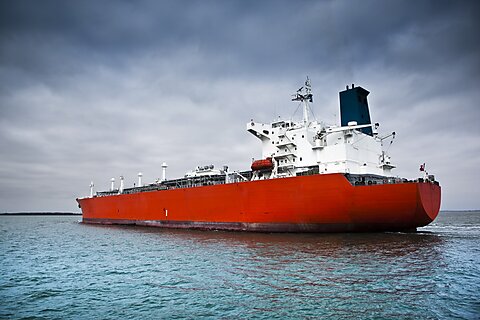Defenders of the protectionist Jones Act often insist that the law’s prohibition on the use of foreign-built vessels in domestic commerce ensures a robust domestic shipbuilding industrial base. But data released by UNCTAD last week demonstrates that such claims rest on a rather loose definition of “robust.” In 2024, the United States — the world’s second-largest manufacturing country with a 17 percent share of world output — accounted for a mere 0.04 percent of global commercial shipbuilding.
Not four percent, or even four-tenths of a percent, but four one-hundredths of a percent. Such output places the United States nineteenth in the world shipbuilding rankings.
This lowly performance wasn’t a one-off. US shipbuilding output over the last five years places the country at seventeenth, while over the last ten years, US shipyards collectively rank twelfth. Since 2014, US shipyards have not exceeded 0.53 percent of global output in a single year.
There’s no mystery as to why. The mediocre rankings and meager output reflect US shipyards’ extreme lack of competitiveness, with US-built merchant ships estimated to cost four to six times as much as those constructed abroad.
This is the product of numerous factors, not least of which is the stultifying effects of protectionism (an inability to compete is the predictable consequence of being shielded from competition). Retreating to their captive domestic market, US shipyards lack the scale and specialization needed to compete internationally.
High costs, inefficiency, and nearly nonexistent demand for US-built commercial vessels outside of the United States have unsurprisingly followed.
Even domestically, however, there is little appetite for new ships. The expense of Jones Act-compliant water transport — in large part due to the required use of costly US-built vessels — means that ships are almost exclusively relegated to trades where terrestrial transportation modes aren’t available (e.g., the non-contiguous states and territories and “energy islands” that lack pipeline connections to US refinery hubs).
This has led to fewer than 100 oceangoing ships, a tiny fraction of the global population, available to meet the transportation needs of the world’s largest economy. Little shipbuilding is required to keep such a diminutive domestic fleet afloat.
The extended lifetimes of Jones Act-compliant vessels, resulting from their high replacement costs, further erode demand. Although internationally flagged merchant ships typically have service lives of 20–30 years, those operating under the Jones Act are rarely scrapped before age 40 (And even then, there’s no guarantee that a vessel’s replacement is imminent. Jones Act carrier Matson, for example, operates six ships that are either beyond 40 or will reach that age by 2027, yet recently stated that it only plans to build three ships over the next decade.)
This combination of a small fleet and the extended service lives of aging vessels makes for anemic shipbuilding demand.
And there’s no sign of a turnaround.
Amidst escalating costs, there’s little reason to believe that demand for domestic shipping is set to increase, and the age profile of the Jones Act-compliant fleet shows relatively few ships primed for replacement over the next ten years (at least by Jones Act standards).
Absent major policy changes, depressed levels of domestic shipbuilding are likely for the foreseeable future.
The Jones Act’s US-build requirement hinges on the notion that the country’s shipbuilding industry would be even weaker in its absence. But given its negligible output, this essentially means believing that commercial shipbuilding in the United States, a manufacturing powerhouse renowned for its competitiveness and innovation, would essentially be nonexistent but for this protectionist law.
This doomsday scenario, however, is nearly what the Jones Act has achieved. As such, it’s increasingly difficult not to conclude that a United States free of such protectionism would have improved on the law’s sorry record. It would be hard to do much worse.
















